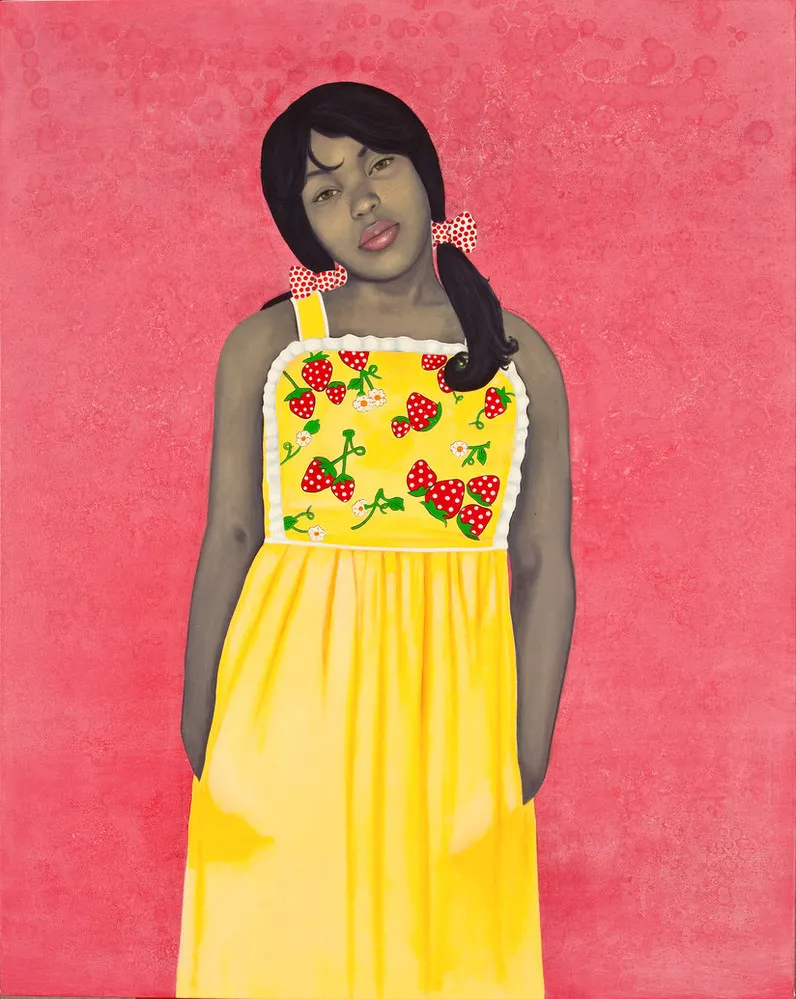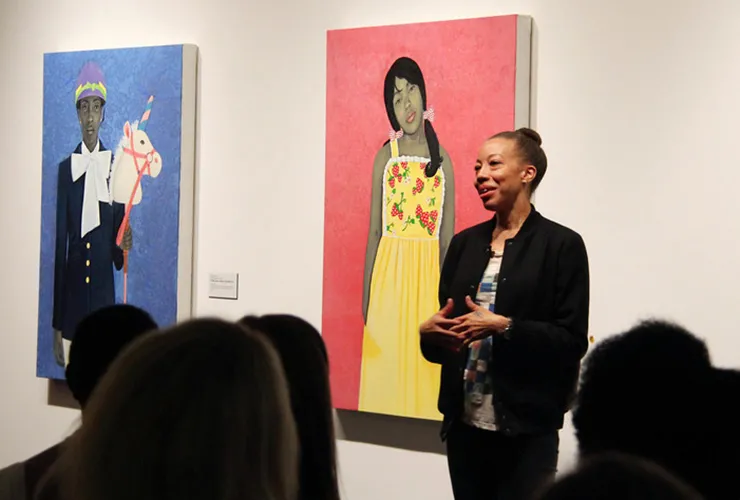They call me Redbone, but I’d rather be Strawberry Shortcake
Close up of They call me Redbone, but I’d rather be Strawberry Shortcake


Like most contemporary theorists, painter Amy Sherald perceives racial identity as a performance in response to external forces rather than an essential attribute. As one of just a few Black children in her private school in Georgia, she recalls being highly conscious of how she spoke and dressed, believing these behaviors were the key to social acceptance and assimilation. They call me Redbone, but I’d rather be Strawberry Shortcake alludes to racial labeling directly, as the slang term “redbone” typically refers to a Black woman with a light skin tone.
Sherald modifies historical portrait formats to upend the dominant narrative of African American history. She notes: “I create playful yet sober portraits of Black Americans within an imaginative history where I do Black my way, in the European tradition of painted portraiture.” While historical portraitists aimed to reveal a sitter’s social standing or some essence of character, Sherald’s haunting figures are expressionless and dressed in unusual, costume-style clothing that she has collected.
Typical of Sherald’s art, the young woman in They call me Redbone, but I’d rather be Strawberry Shortcake appears to float against an intensely colored background, which enhances the work’s dreamy quality. The artist achieves this effect by limiting her use shadow along the figure’s contours. Here as in other works, Sherald disrupts viewers’ readings of her portrait subjects as Black by painting their skin in grayscale, metaphorically removing their “color.”
